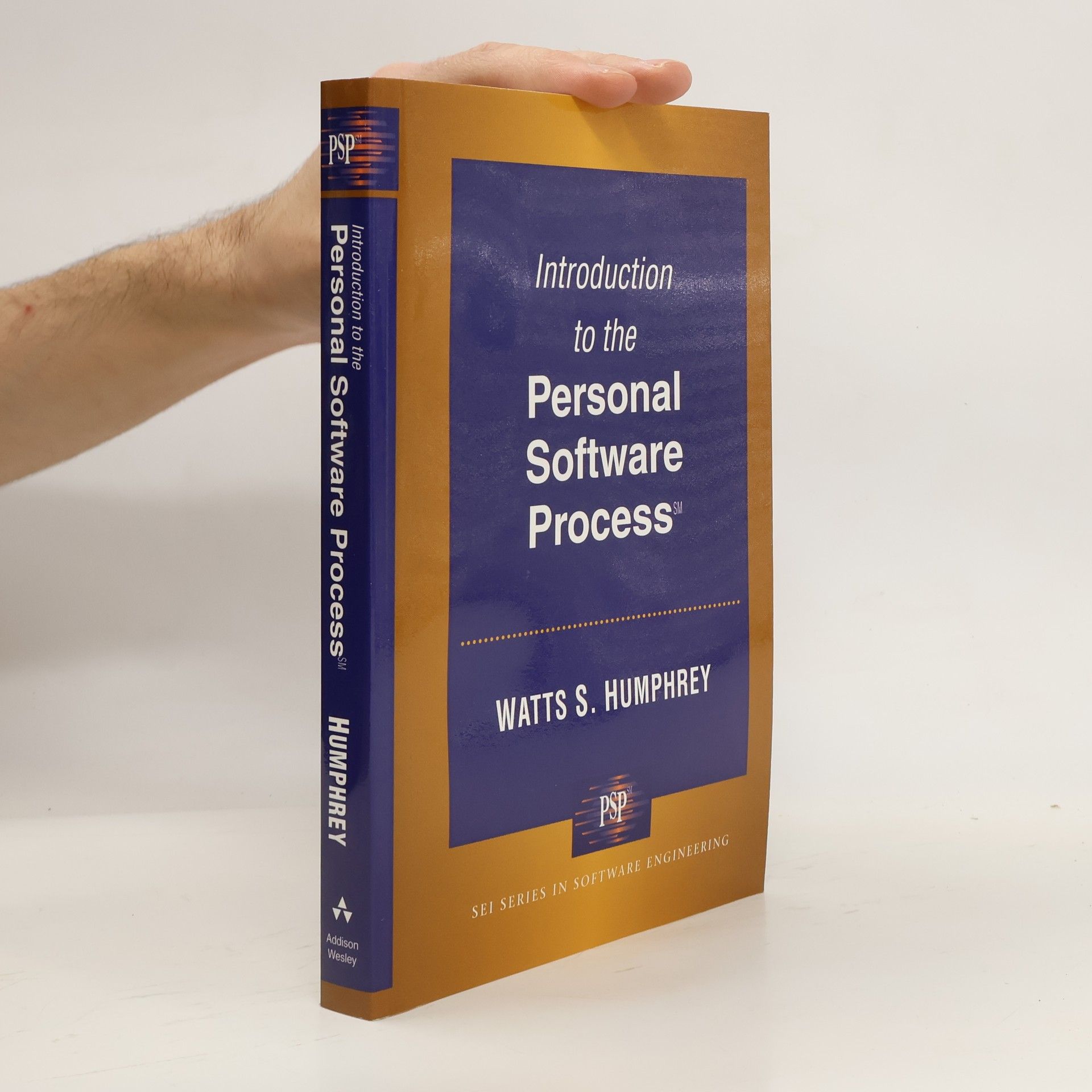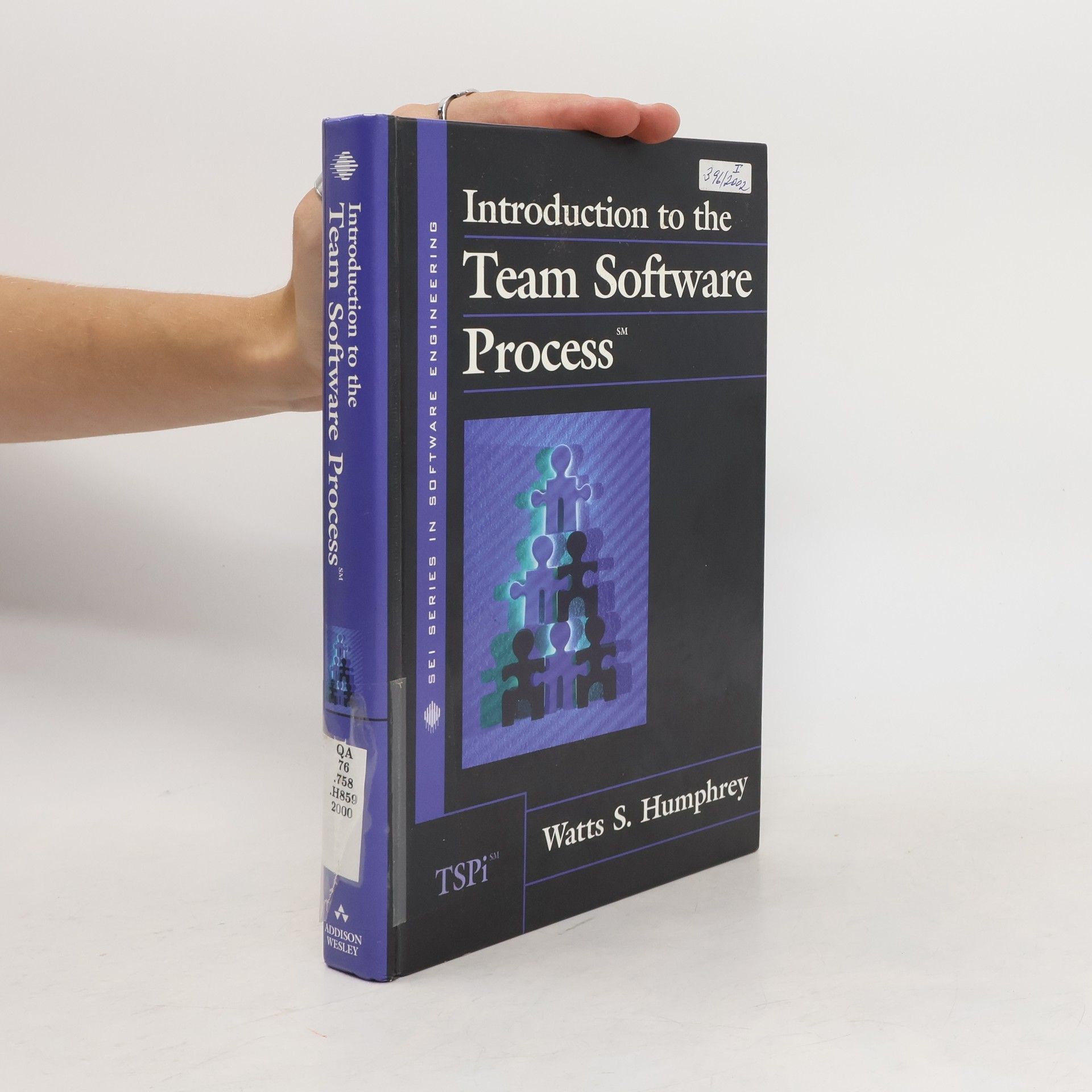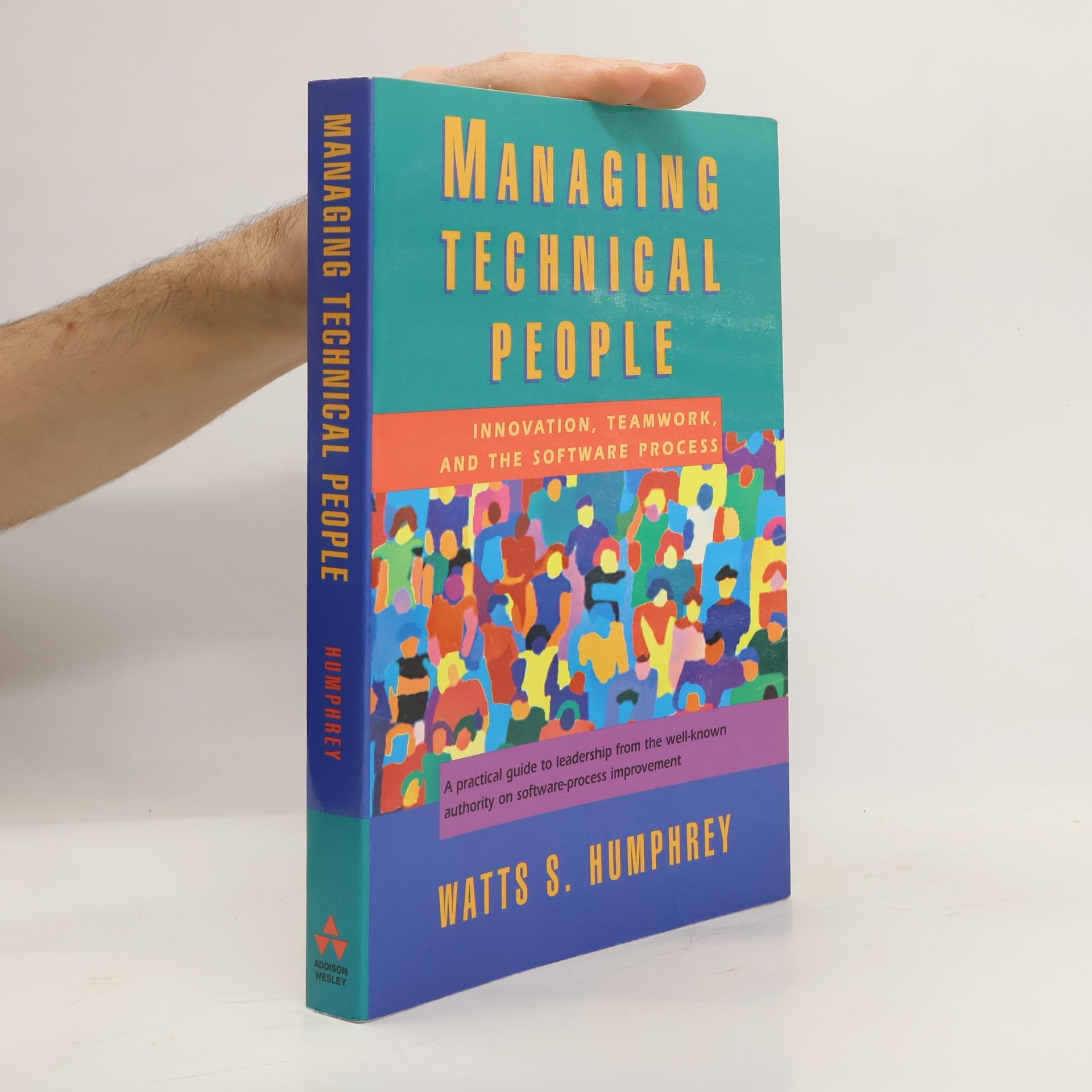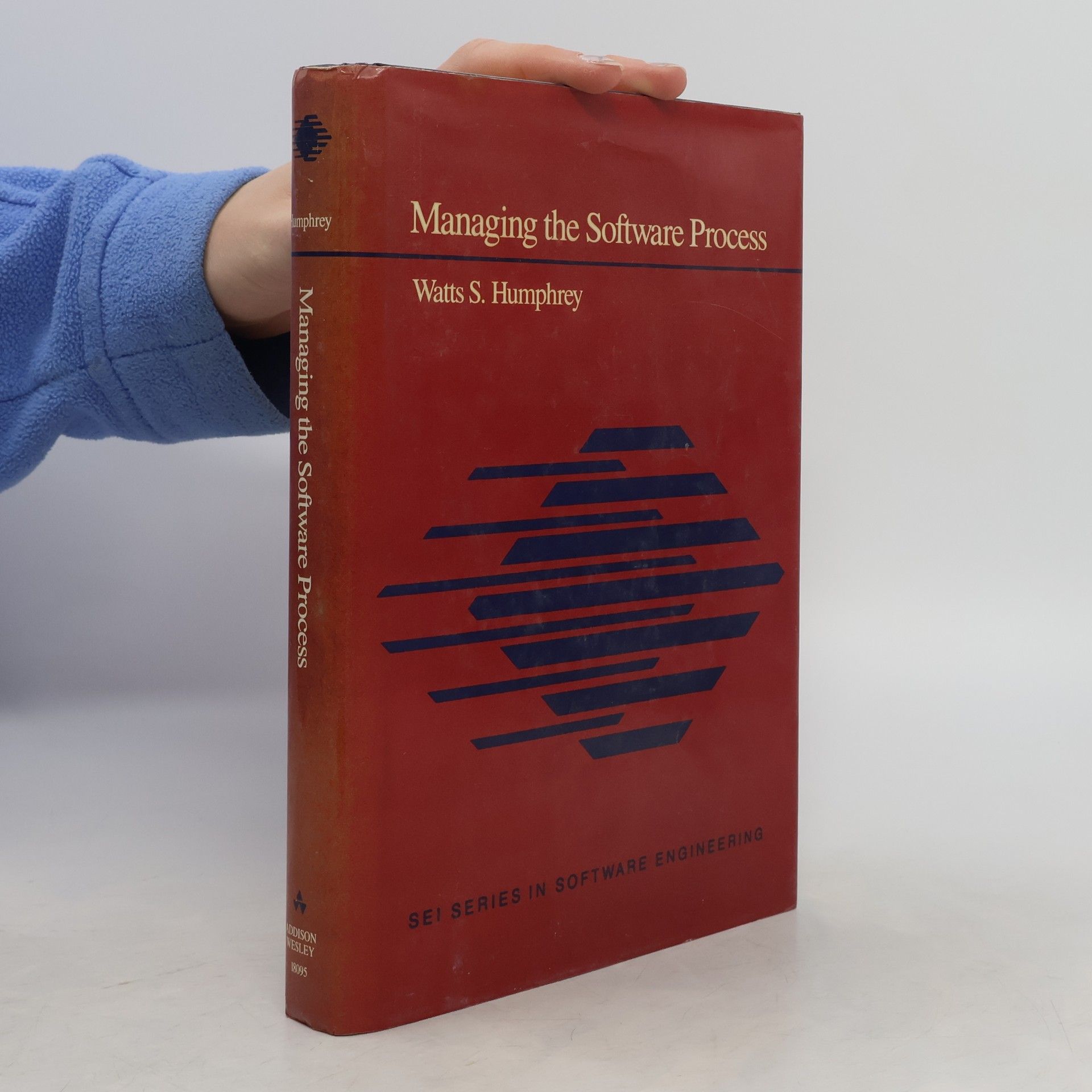Humphrey and others have used material from this book to train professionals and students around the world in a projects-oriented software engineering course. First establishing the need for discipline in software engineering, and the benefits to practitioners of learning how to manage their personal software process, Humphrey then develops a model that they can use to monitor, test, and improve their work. Examples drawn from industry enhance the practical focus of the book, while project exercises give readers the opportunity to practice software process management as they learn it. Features: presents concepts and methods for a disciplined software engineering process; scales down industrial practices for planning, tracking, analysis, and defect management to fit the needs of small-scale program development; and shows how small project disciplines provide a solid base for larger projects
Watts S. Humphrey Books





The author, drawing on years of experience at IBM and the SEI, provides here practical guidance for improving the software development and maintenance process. He focuses on understanding and managing the software process because this is where he feels organizations now encounter the most serious problems, and where he feels there is the best opportunity for significant improvement. Both program managers and practicing programmers, whether working on small programs or large-scale projects, will learn how good their own software process is, how they can make their process better, and where they need to begin. "This book will help you move beyond the turning point, or crisis, of feeling over-whelmed by the task of managing the software process to understanding what is essential in software management and what you can do about it." Peter Freeman, from the Foreword 0201180952B04062001
Managing Technical People
- 352 pages
- 13 hours of reading
Well-known author and long-time manager Watts Humphrey offers keen insight into the special challenge of identifying, motivating, and organizing creative technical people, and the opportunities involved in managing these people.
Watts Humphrey is the visionary behind the Capability Maturity Model (CMM)(R) and the Personal Software Process (PSP) (sm) . The CMM contains a framework for software process improvement at the organizational level. The PSP builds the self-discipline needed for individual programmers to work efficiently and effectively. The author's new Team Software Process (TSP) (sm) details methods to guide the formation of software development teams, to motivate their work, and to enhance their productivity. This book describes an introductory version of TSP, ideal for smaller projects but also useful for learning basic techniques and procedures that apply to other development projects. Methods presented The book walks readers through a complete development cycle, Team members should not have to expend valuable time and energy reinventing ways to organize and run their team. By following a proven process, the team will more quickly be able to focus on the successful completion of the project itself. To help a team course apply these methods, the book provides two project exercises, with prescribed development goals and team roles.
Introduction to the Personal Software Process
- 304 pages
- 11 hours of reading
This newest book from Watts Humphrey is a hands-on introduction to basic disciplines of software engineering. Designed as a workbook companion to any introductory programming or software-engineering text, Humphrey provides here the practical means to integrate his highly regarded Personal Software Process (PSP) into college and university curricula. The book may also be adapted for use in industrial training or for self-improvement by practicing software engineers. Applying the book's exercises to their course assignments, students learn both to manage their time effectively and to monitor the quality of their work, good practices they will need to be successful in their future careers. The book is supported by its own electronic supplement, which includes spreadsheets for data entry and analysis. A complete instructor's package is also available. By mastering PSP techniques early in their studies, students can avoid--or overcome--the popular "hacker" ethic that leads to so many bad habits. Employers will appreciate new hires prepared to do competent professional work without, as now is common, expensive retraining and years of experience.